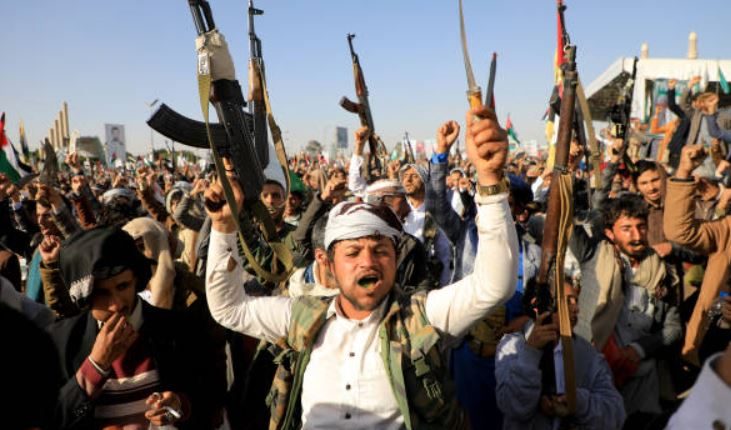New US Sanctions Aim to Mitigate Harm on Yemen’s Hungry Millions Amid Houthi Attacks
The US has taken a noteworthy step in curbing the Houthi rebels’ attacks on international shipping by adding them back to its list of specially designated global terrorists and imposing additional financial sanctions.
This decision comes in the wake of a recent Houthi attack on an American-owned ship, highlighting the persistent challenges faced by the Biden administration in curbing militant activities.
Biden Administration’s Balancing Act
The Biden administration, while implementing financial penalties, emphasizes its commitment to minimizing harm to Yemen’s impoverished and hungry population, numbering 32 million.
However, aid officials, including Oxfam America’s associate director Scott Paul, express concerns about the potential impact on Yemenis already caught in a severe humanitarian crisis.
The formal designation brings sanctions aimed at cutting off violent extremist groups from their financial sources. Notably, this marks a reversal of President Biden’s earlier decision to lift the terrorist designation due to humanitarian concerns.
Despite previous military strikes by the US and Britain against Houthi targets proving ineffective, the recent escalation in attacks on commercial shipping in the Red Sea raises questions about the effectiveness of these measures.
The Houthi rebels, supported by Iran and aligned with Hamas, have been a persistent challenge, launching attacks on various fronts.
While critics argue that broad US sanctions may have limited impact on the defiant Houthi group, there are broader concerns about the potential complications these designations could introduce to international peace efforts in the region.
The Houthis’ response to the terrorist designation, considering it a “badge of honor for Yemen’s support of Palestinian resistance in Gaza,” reflects the complex geopolitical dynamics in the Middle East.
US Sanctions on Houthis Raise Supply Chain Concerns

As the US implements these sanctions, fears arise that the move could deter shippers, banks, and others in the commercial supply chain upon which Yemenis heavily depend. With 90% of Yemen’s food imported, any disruption in the supply chain could exacerbate the already dire humanitarian situation.
To mitigate potential adverse impacts, US officials assure that the sanctions will exempt commercial shipments of essential items like food, medicine, and fuel, as well as humanitarian assistance into Yemeni ports.
The 30-day waiting period before the sanctions take effect is intended to provide time for necessary preparations.
While the Biden administration refrains from reinstating the more severe designation of foreign terrorist organization immediately, it remains open to reevaluating the designation based on Houthi compliance. The delicate balance between addressing security concerns and safeguarding humanitarian interests in Yemen remains a critical challenge for US policymakers.
The Houthi conflict and its implications underscore the intricate challenges in the region, where geopolitical dynamics intersect with humanitarian crises, raising questions about the effectiveness of sanctions and their impact on peace initiatives.

